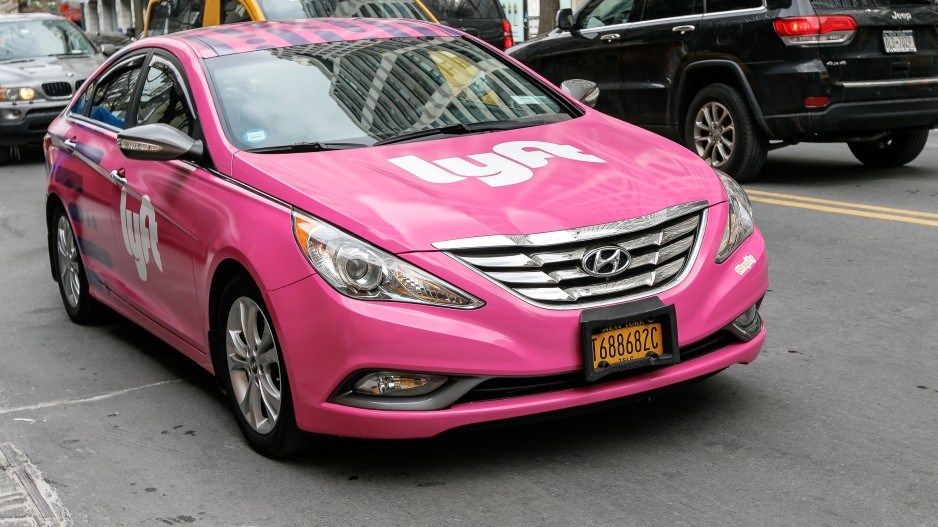What happened: Lyft says it wants to offer ride-hailing service in Vancouver this year
Why it matters: The province begins accepting applications from potential operators next month but Uber has yet to confirm its intentions
Lyft Inc. (Nasdaq: LYFT) appears ready to play ball with B.C.’s stringent ride-hailing regime.
The American firm announced Monday (August 12) plans to launch ride-hailing services in Vancouver sometime “this year.”
The move comes after Vancouver-based car service Kater, which acquired taxi licences to allow users to summon rides through a mobile app, confirmed last month it would apply to operate under the B.C. government’s ride-hailing rules this fall.
The province’s Passenger Transportation Board (PTB) begins accepting applications September 3 from potential operators.
The soonest any of these companies will be able to hit the roads is September 16, when all related regulations and insurance products will be in full effect.
However, it’s unclear how long it will take the cabinet-appointed PTB to review applications from companies wishing to operate in the province.
Lyft’s announcement did not clarify whether it planned to operate solely in the City of Vancouver or throughout Metro Vancouver.
A representative for Lyft did not immediately respond to an inquiry from Business in Vancouver.
Ride-hailing giant Uber Technologies Inc. (NYSE: Uber) said last month it was still uncertain whether it would operate in B.C.
“Getting enough driver-partners qualified is the first of several steps before Uber can make a decision whether to launch in Metro Vancouver and it needs to review the regulations that government has designated the Passenger Transportation Board to set, which includes key policies such as flexible pricing, boundaries and no vehicle caps,” the company said in a July 24 release.
For the time being Uber has been pushing potential drivers to acquire a Class 4 driver’s licence as required under the B.C. ride-hailing regime.
Class 4 licences are less common than the standard Class 5 licences and require additional testing and checks on drivers.
Meanwhile, Lyft also announced Monday the appointment of its first general manager for B.C.
Peter Lukomskyj previously served as senior vice-president of products at Vancouver-based Elastic Path Software Inc.
At Lyft he will be in charge of local operations, and driver and passenger acquisition.
“We look forward to working with all levels of government in the region, including the Ministry of Transportation and Infrastructure, and the Passenger Transportation Board, to be a part of the province’s transportation network and help create a frictionless experience for British Columbians,” Lukomskyj said in a statement.




